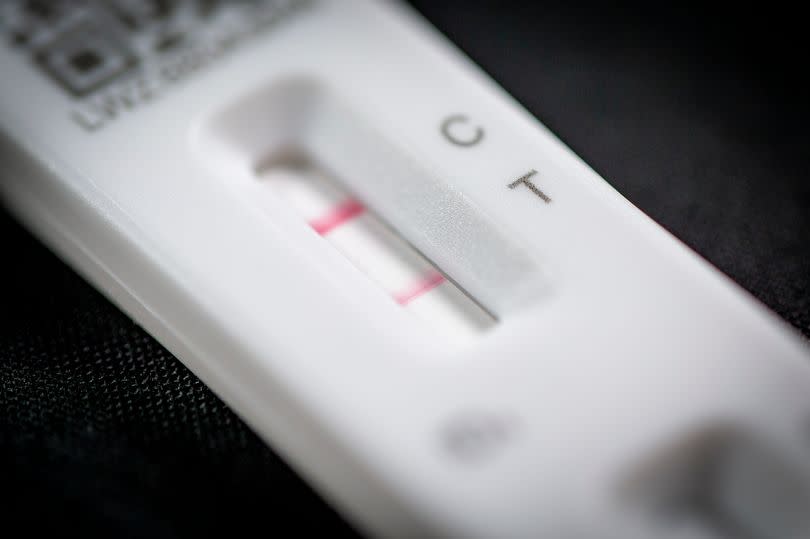New FLiRT and LB.1 Covid variant symptoms as experts speak out

A summer wave of Covid-19 is spreading across the UK as large gatherings, such as music festivals and people coming together to watch the Euros, become a breeding ground for the virus, according to experts.
The new wave is being fuelled by new variants FLiRT and LB.1, with an increase in people reporting the cold-like symptoms associated with the illness.
Some health experts have suggested that the two new variants might be able evade immunity, which is why people who have been vaccinated are still getting ill.
READ MORE: Warning hay fever symptoms could be mixed up with new Covid variant this summer
According to Dr Mariyam Malik, an NHS and private GP at Pall Mall Medical, coronavirus is able to spread rapidly over the summer months. "Increased travel and big events such as festivals often result in crowded settings where the virus can spread more easily, and there is no longer any legal restrictions like wearing masks, social distancing," she said.
Here's what we know about the new variants, the symptoms people should be looking out for and how worried we should be about the summer wave of infections.
Should we be worried about the new Covid variants?
Dr Malik said it may be true that the new variants can spread more easily than the previously seen strains. "The FLiRT variant has specific changes in its spike protein that might make it spread more easily and dodge immunity from past infections or vaccines," she said. "Similarly, the LB.1 variant has mutations that help it spread and possibly weaken the protection we get from previous immunity, making these variants different from earlier versions of the virus."
She added that is natural for new variants to emerge over time and mutations are more common during a wave of infections. "When lots of people get infected, the virus has more chances to mutate," she said. "Also, our immune responses from past infections or vaccines can push the virus to evolve."
Paul Hunter, professor in medicine at the University of East Anglia, told the Times that although there is evidence of a summer wave of infections, Covid "will never be as serious as it once was". However, elderly and vulnerable people are still at greater risk. "If you are under 40 the risk of death is minuscule," Prof Hunter said. "If you are over 75 the risk is real and significant."
People who have been vaccinated in the past are likely to still be well protected against serious illness, according to Professor Jonathan Ball, of Liverpool School of Tropical Medicine. "Your immune memory is really good. We know that the immune B-cells, which produce the antibodies that protect against severe disease, can persist for decades."
However, immunity to infection wanes much quicker. Prof Hunter explained: "Immunity to infection lasts on average only four to six months. That is true for younger people aged 20 to 30 as well"
What symptoms should people look out for?
Symptoms of the new strain include a stubborn cough or a sore throat that is hard to shift. Dr Malik said symptoms remain largely the same as with previous variants, for example common symptoms include "fever, cough, fatigue, loss of taste or smell, sore throat, muscle or body aches, shortness of breath, headache, and a runny nose," she said.
On testing, she added: "People infected with the FLiRT and LB.1 variants do typically test positive on standard PCR tests. Rapid antigen tests also known as lateral flow tests can also detect these variants, though their sensitivity might vary."
How should Covid be treated?
Doctors generally recommend self isolating and using over-the-counter treatments if you are experiencing symptoms of Covid-19. Dr Malik said: "It is best to try to self-isolate, rest and stay hydrated. Use over-the-counter medications for symptom relief, such as paracetamol and ibuprofen, and monitor your symptoms closely, seeking medical help if they worsen."
Severe symptoms, such as difficulty breathing, chest pain, confusion, or a persistent high fever, would warrant a trip to the GP, Dr Malik advised. She added: "Individuals with underlying health conditions should contact their GP if they test positive or develop symptoms, as they may be at higher risk for severe illness."

 Yahoo News
Yahoo News 
